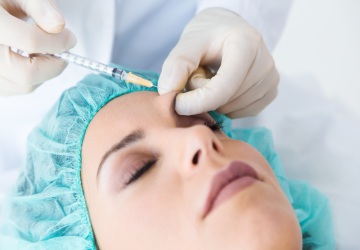You glance in the mirror and notice your skin isn't as bright or smooth as it used to be. Those fine lines appear overnight, and stubborn acne won't disappear. We live in an age obsessed with beauty and youth, and your skin is on the front lines of that battle. The influence of dermatology on modern beauty standards means the pressure is on to achieve flawless, ageless skin. Let's explore the impact of dermatology on current beauty standards together!
The Evolution of Beauty Standards and Dermatology
Dermatology, the medical specialty focused on skin, hair, and nails, has enormously influenced modern beauty standards. As dermatology advanced in the early 20th century, flawless and youthful-looking skin became highly prized.
The Rise of Cosmetic Procedures
In the 1920s, dermatologists began offering cosmetic procedures like chemical peels and dermabrasion to improve skin appearance. Soon, injectable wrinkle fillers and Botox followed, promising to turn back the clock. These non-invasive treatments allowed people to enhance their looks subtly without the risks of surgery.
Cosmetic dermatology and skincare evolved, popularizing terms like "anti-aging" and marketing products and services to correct "skin imperfections." This shift promoted the idea that wrinkles, age spots, and other signs of aging were "problems" to fix.
An Unrealistic Standard of Perfection
While dermatology has brought real health benefits, its influence on beauty standards has also spread unrealistic expectations. Digital editing and filters on social media have further skewed perceptions of normal skin.
The constant barrage of touched-up images in media and marketing can fuel dissatisfaction with one's appearance and drive the perceived "need" for cosmetic treatments or skincare products. However, wrinkles, pores, and age spots are standard parts of human skin—not flaws to be "corrected."
How Dermatological Advances Have Shaped Modern Beauty Ideals
Advances heavily influence modern beauty standards in dermatology and skincare. Our notions of attractiveness have evolved as we've learned more about how skin functions and what it needs to be healthy.
In the early 20th century, pale, unblemished skin was considered the ideal. Tanned skin was seen as lower class, a sign you worked outside. Now, of course, a sun-kissed glow is coveted. This shift came as we better understood the sun's role in skin damage and aging.
Dermatologists have also helped popularize regular skincare routines. Concepts like cleansing, toning, and moisturizing - as well as more frequent facials and masks - have become commonplace. Skincare is booming, with people seeking products to address concerns like acne, wrinkles, hyperpigmentation, and more.
Injectables and fillers have likewise shaped modern beauty standards. Botulinum toxin and hyaluronic acid fillers smooth wrinkles and add volume, creating a youthful appearance that many now aspire to. These cosmetic procedures, guided by dermatologists, have subtly but significantly altered our shared perception of an attractive face.
The Pros and Cons of Changing Beauty Standards in Dermatology
The field of dermatology has undoubtedly influenced societal beauty standards, for better and for worse. Here are some pros and cons to educate you.
The Pros: Promoting Healthy Skin
Dermatology has helped people understand how to properly care for their skin through good hygiene and sun protection. Recommendations like wearing sunscreen, not smoking, managing stress, drinking water, and eating a balanced diet have allowed many to achieve smooth skin.
The Cons: Unrealistic Beauty Standards
However, the cosmetic side of dermatology has also promoted a narrow definition of attractiveness that values youth and perfection. Procedures like Botox, fillers, and cosmetic surgery suggest natural aging and imperfections must be "fixed." Advertisements frequently feature unrealistic images of flawless skin that have been photo-edited. This can fuel anxiety, self-criticism, and even body dysmorphia in some.

While dermatology, as a medical field, aims to treat real health issues, its influence on beauty standards is complex. At its best, dermatology educates and empowers people to care for their skin and embrace their natural beauty. But at its worst, the cosmetic side of dermatology and related marketing tactics can promote unrealistic societal pressures to achieve a narrow and unrealistic standard of "perfection."
How to Achieve Healthy Skin Naturally
To achieve healthy skin naturally, focus on caring for your skin from the inside out. What you put into your body directly affects your skin health and appearance.
Drink Plenty of Water
Staying hydrated keeps your skin cells plump and moisturized. Aim for 6-8 glasses of water daily to keep your skin supple and smooth. Lack of hydration can lead to dry, dull skin and accelerate signs of aging.

Eat a Healthy Diet
A balanced diet with many fresh fruits and vegetables provides the nutrients your skin needs to glow. Focus on antioxidant-rich foods like leafy greens, bell peppers, broccoli, tomatoes, and citrus fruits. Healthy fats from avocados, nuts, and seeds promote skin elasticity and cell regeneration. Limit sugar, refined carbs, and unhealthy fats, which can cause inflammation and damage skin cells.
Get Enough Sleep
Aim for 7 to 8 hours of sleep per night to allow your skin to repair itself. Lack of sleep can lead to stress and fatigue, causing dark under-eye circles, dullness, and premature aging. During sleep, your body produces new collagen and cell turnover increases, leading to a healthy, radiant glow upon waking.
Manage Stress Levels
Too much stress hormone cortisol can negatively impact your skin health and accelerate aging. Try relaxation techniques like yoga, meditation, deep breathing, or journaling to lower stress levels. Even short breaks to unwind and de-stress can benefit your skin and overall health.
Limit Sun Exposure
While some sun exposure is healthy, too much can cause sun damage, age spots, wrinkles, and skin cancer. Wear broad-spectrum sunscreen with SPF 30 or higher, especially on your face, and limit your time in the sun during the peak UV hours of 10 AM to 4 PM.
Following these natural tips to achieve healthy skin will have you glowing quickly. Remember, actual beauty starts from within, so prioritize caring for your overall health and wellness daily.
Wrap Up!
You owe it to yourself to aim for healthy skin and ignore unrealistic beauty standards. Focus on developing a skincare routine that nourishes your skin and makes you feel confident from within. Stay true to yourself - your natural beauty will shine through when you pursue knowledge and self-care and embrace who you are. You've got this! Now, go out there and glow.







